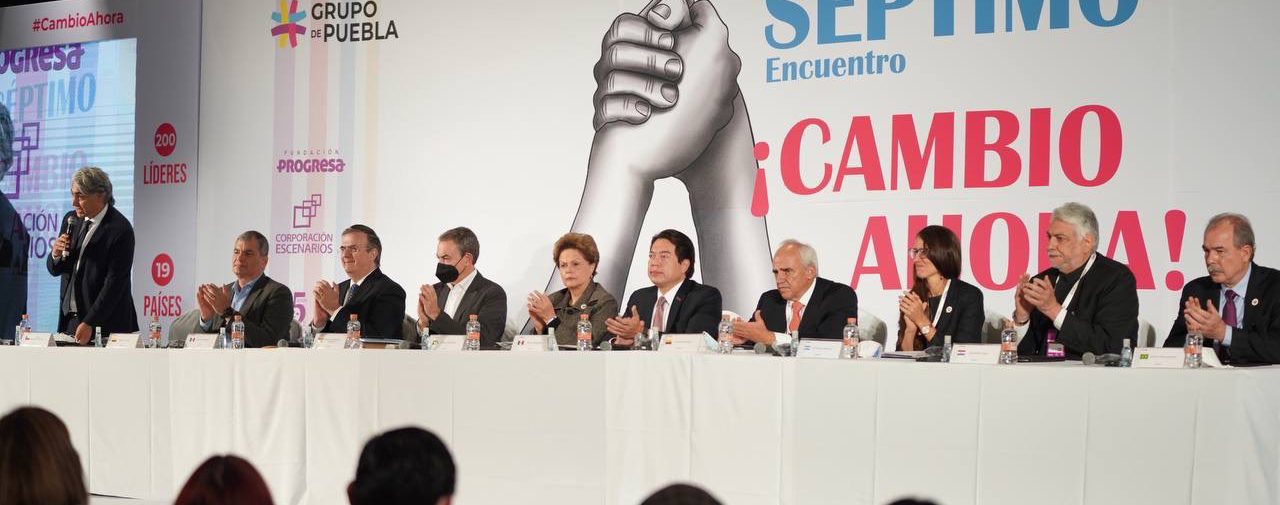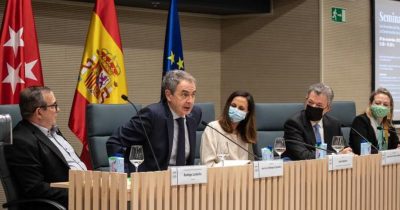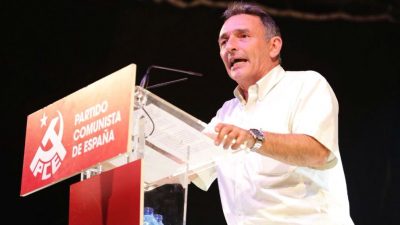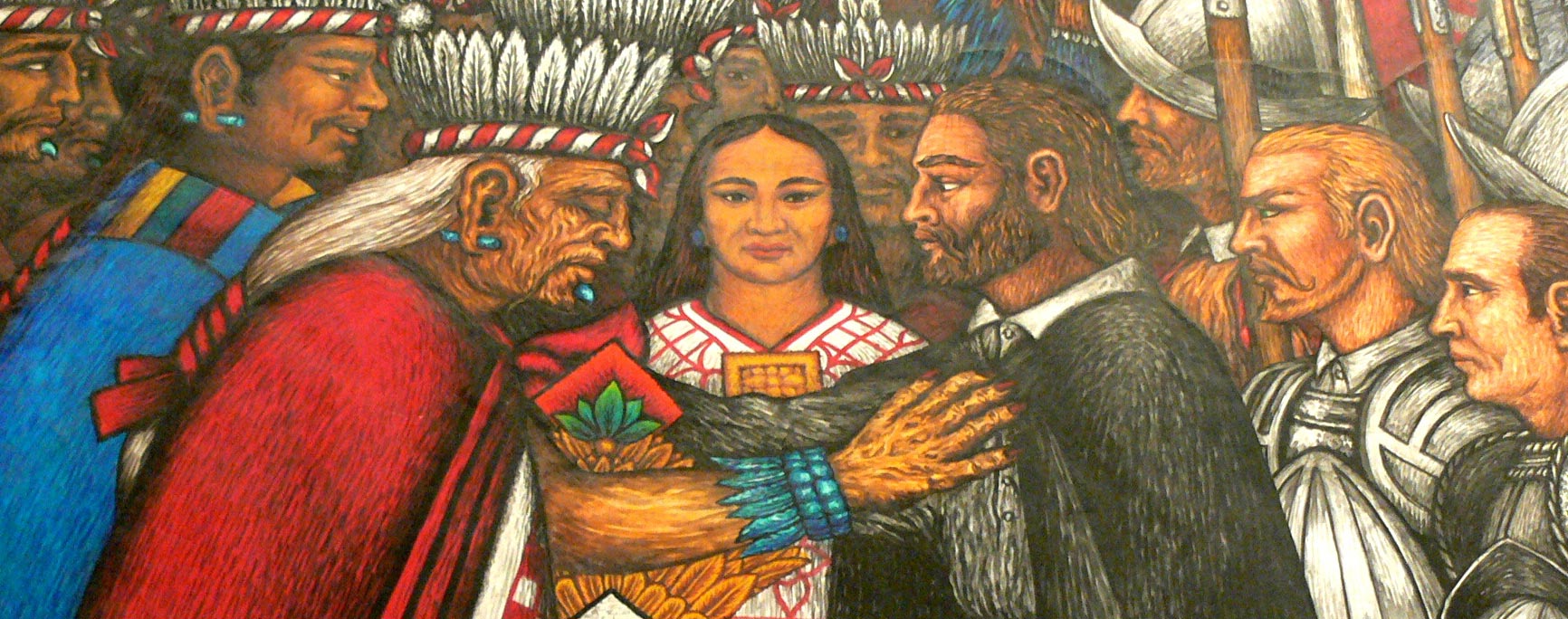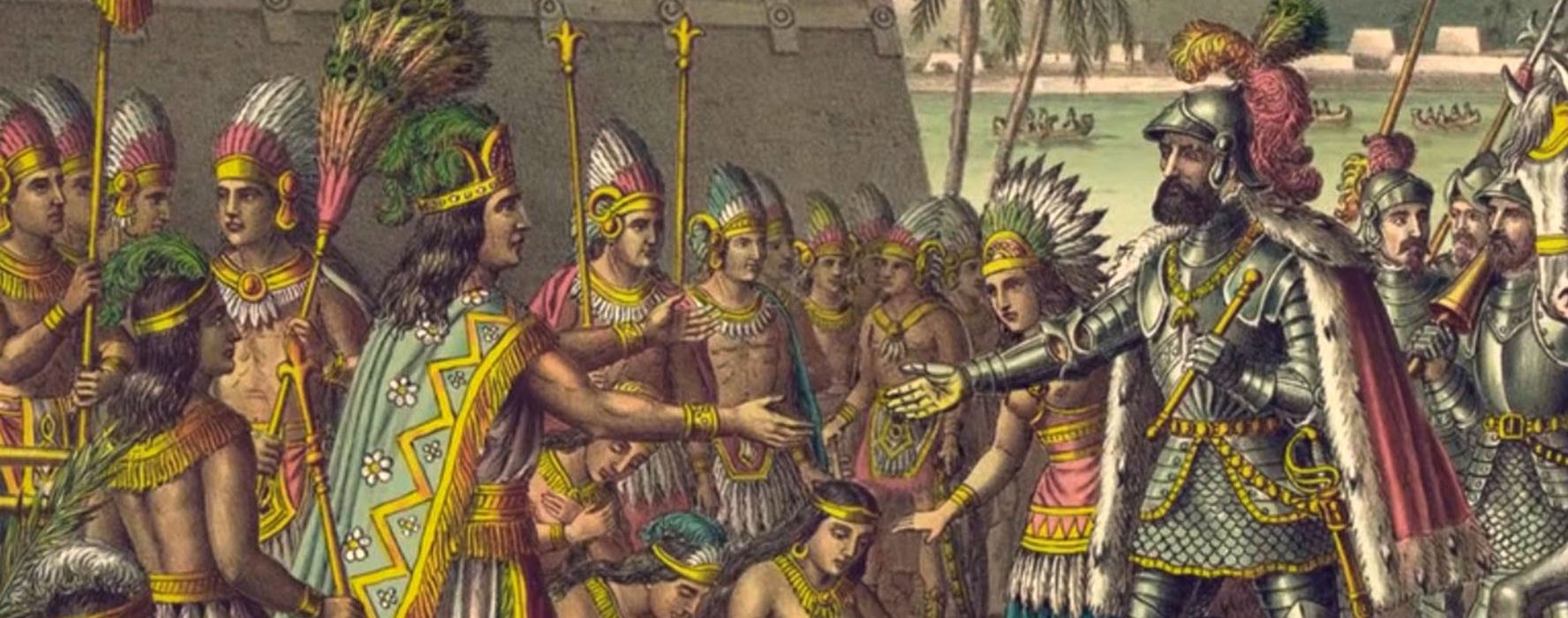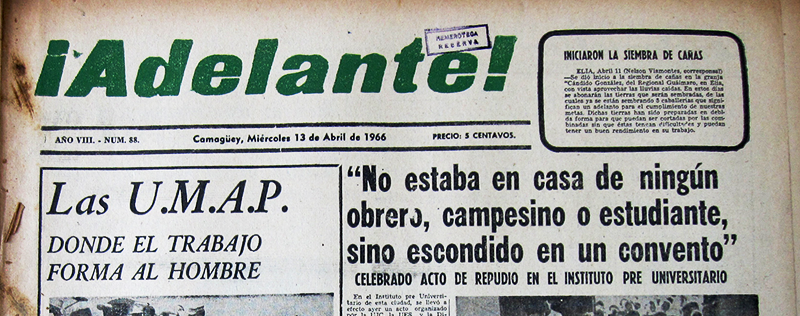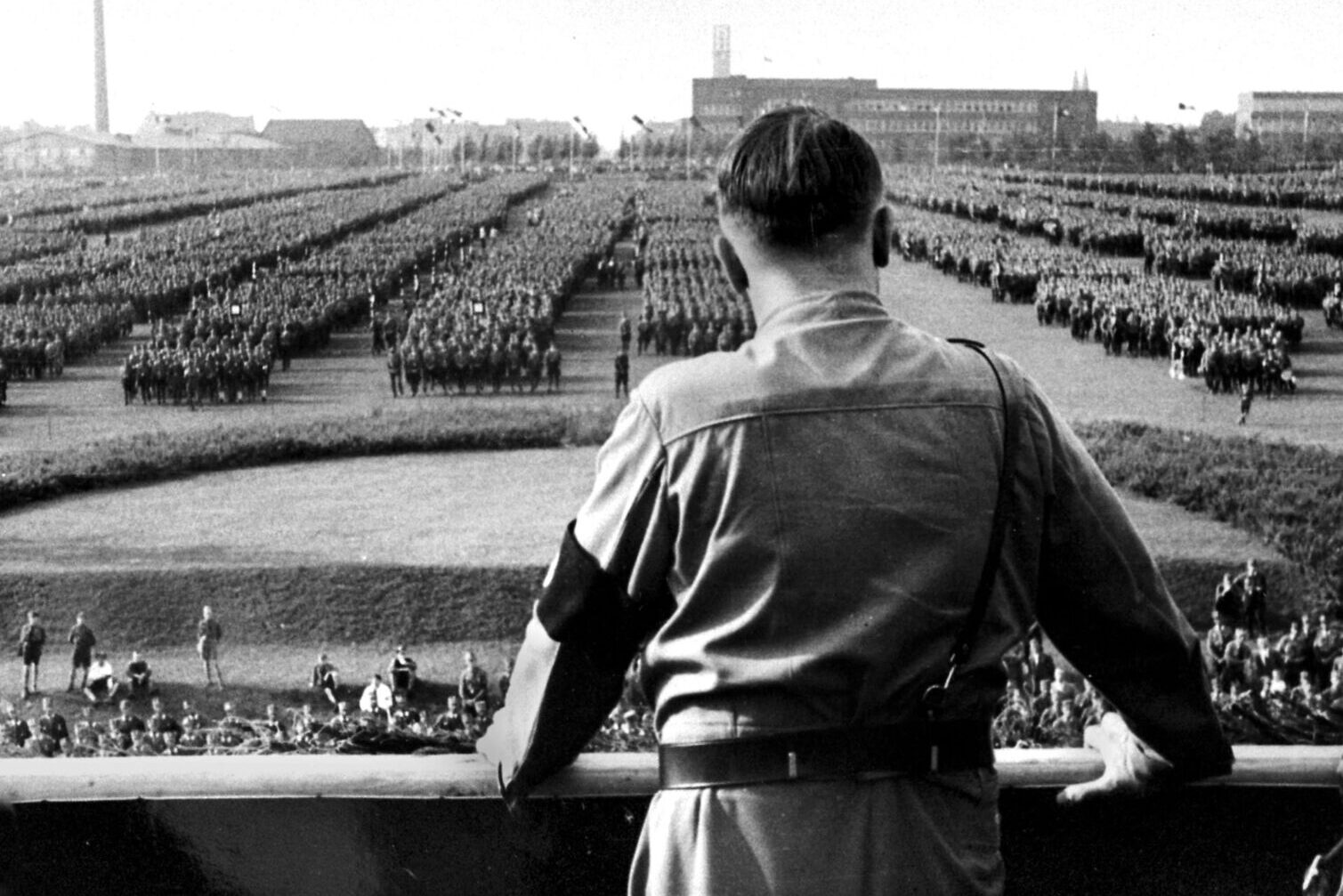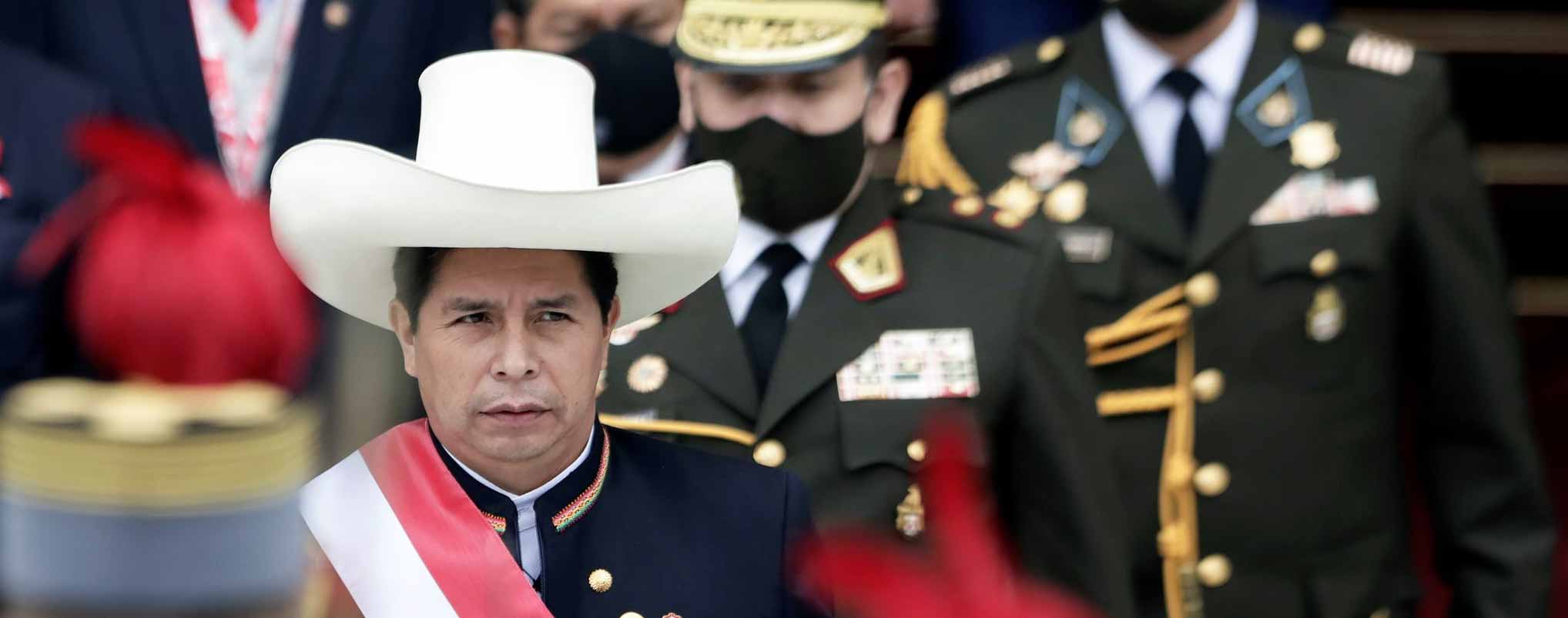Elections, talks, conferences and even a book fair: the former prime minister has been busy as an advocate of the communist regimes.
Over the last few weeks, former Prime Minister José Luis Rodríguez Zapatero has had a demanding schedule as mediator, representative and/or ambassador for the main socialist and communist leaders of Hispanic America. From his work as an “observer” in Venezuela to the Puebla Group meeting, through symposiums, talks and various events, Zapatero has become the “friend” of the narco-communist regimes and their main link to Spain.
On 18 November, Zapatero met with Luis Miguel De Camps, the president of the Dominican Republic‘s Partido Revolucionario Social Demócrata (PRSD). The meeting was also attended by the PSOE’s Secretary for International Relations, Hana Jalloul, President of the Socialist parliamentary group in the Madrid Assembly and Secretary for International Relations and Development Cooperation.
On 21 November, the President of Venezuela, Nicolás Maduro, received Zapatero at Miraflores Palace a day before the local and regional elections. The former Spanish president came as an “international observer” along with another old acquaintance of the Chavista regime, Juan Carlos Monedero. There, Zapatero called for “permanent dialogue between the government and the opposition” in a speech aimed at whitewashing an election plagued by irregularities and in which abstention reached 60 per cent.
Communist events promoted by the government
Before travelling to Mexico to take part in the Puebla Group summit, the socialist leader took part in Spain in the seminar ‘”he red thread of peace between Spain and Latin America”, organised on 25 November by the Menéndez Pelayo International University and the Marxist Research Foundation, whose board of trustees is chaired by the deputy and secretary general of the PCE (Spanish Communist Party), Enrique Santiago. According to VozPópuli, Zapatero spoke in the block on current threats to peace in Latin America, and his lecture was entitled “Dialogue as a mechanism for conflict prevention”.
On 29 November, Zapatero was applauded by the Minister for Social Rights and Agenda 2030, Ione Belarra, for his work “for peace and coexistence”. The event, aimed at extolling the “Peace Agreement” signed five years ago in Colombia, was organised by the Secretary of State for the 2030 Agenda, which is headed by Santiago (advisor to the FARC narco-guerrilla) in one of the campuses of the Carlos III University. There, Zapatero shared a table with former FARC commander-in-chief Rodrigo Londoño, alias Timochenko.
A day later, Zapatero released a video giving his support to the Chilean candidate Gabriel Boric in the second round on 19 December, where he will face the candidate of the Social Christian Front, José Antonio Kast, in order to reach La Moneda. “That is why I support Boric, because I want history not to stop, I want him to bet on the future of Chile and Latin America, on a fully democratic Chile, open to the world, on a Chile of freedoms and rights, of social policies, on a Chile that is a brother and friend of Spain”, said Rodríguez Zapatero.
Puebla Group Summit
On the same Wednesday, in Mexico, Zapatero also praised President Andrés Manuel López Obrador at the “International Meeting for the Causes of the Peoples”. According to the former socialist leader, Obrador’s project is on the right track and the so-called “Fourth Transformation” is bringing about the great change that the country needed. The event was also attended by the former presidents of Ecuador and Brazil, Rafael Correa and Dilma Roussef, among others.
And so we arrived at the Puebla Group Summit, with attendees including Correa, Rousseff, former Colombian President Ernesto Samper and former Paraguayan President Fernando Lugo. The President of Argentina and founder of the Puebla Group, Alberto Fernández, the President of Bolivia, Luis Arce, and the former President of Brazil, Lula da Silva, also participated remotely. Juan Carlos Monedero and Baltasar Garzón (former judge sentenced for prevarication) also attended.
From there, the participants supported the Mexican president’s proposal to tax the richest people and companies in the world in order to combat poverty. Naturally, the Puebla Group also celebrated the new “progressive winds” in the region, such as the election of the new left-wing governments in Argentina, Bolivia and Peru and the Chilean Constituent Assembly.
Talks, assemblies and a book fair
Zapatero’s agenda in Mexico has been full of events that have confirmed him as one of the great spearheads of the Chavista tyranny in Europe. Last Tuesday, at one of the meetings of the Puebla Group, Zapatero insisted that dialogue should be resumed in Venezuela: “Dialogue should be resumed in order to make progress on what seems to me to be the most important fundamental issue, which is to recover basic consensus, the spirit of coexistence and the recognition of one side towards the other”, he added.
He also said that the whole region was moving towards progressivism and that there would be no room for any other political option, which would automatically be classified as “extreme right”: “Thinking about the continent, the election in Chile is very important, I think that the extreme right is not going to win. I also think that [Jair] Bolsonaro will lose, and even in Colombia there may be a change”, he commented.
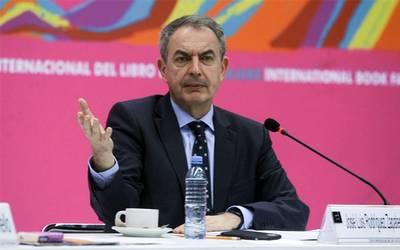
Zapatero in the International Book Fair in Guadalajara, Mexico.
Zapatero still had time to take part in the round table discussion “Equality versus freedom, freedom versus equality: is it possible to resolve the perennial tension?”, held at the Guadalajara International Book Fair (FIL), in which he insisted that the process of integration would favour consensus in Hispanic America beyond “messianism”.
“The recovery of the basic consensus in Hispanic America is integration, unity, without a doubt. A great project that does not have any messianic content, but rather rational, political and construction content, starting with trade, university degrees or common infrastructures”, he pointed out.
Furthermore, he insisted that Hispanic American integration should be an aspiration similar to that of independence. “It should be a utopia as powerful as the utopias and aspirations of independence were. What is more, Latin America’s true independence would be the day it achieves great integration, just as Europe has been Europe only when it has been the European Union”, he said.
Sources
This post was translated from:
Arce, M. (2021) ‘Los quince días frenéticos de José Luis Rodríguez Zapatero para deshacer las Américas, ABC, LibertadDigital, 7 December. Available at: https://www.libertaddigital.com/internacional/latinoamerica/2021-12-07/jose-luis-rodriguez-zapatero-cumbre-comunismo-grupo-de-puebla-mexico-venezuela-deshacer-las-americas-6844232/ (Accessed: 12 December 2021).
Share this article
On This Day
- 1528 Prince Felipe is sworn as heir to the Spanish kingdoms in Madrid.
- 1593 The city of San Salvador de Jujuy (Argentina) is founded by Francisco Argañaraz y Murguía.
- 1776 Battle of Lexington and Concord (United States).
History of Spain
26 August 2020
27 January 2021
Communism: Now and Then
23 December 2022
28 July 2021
